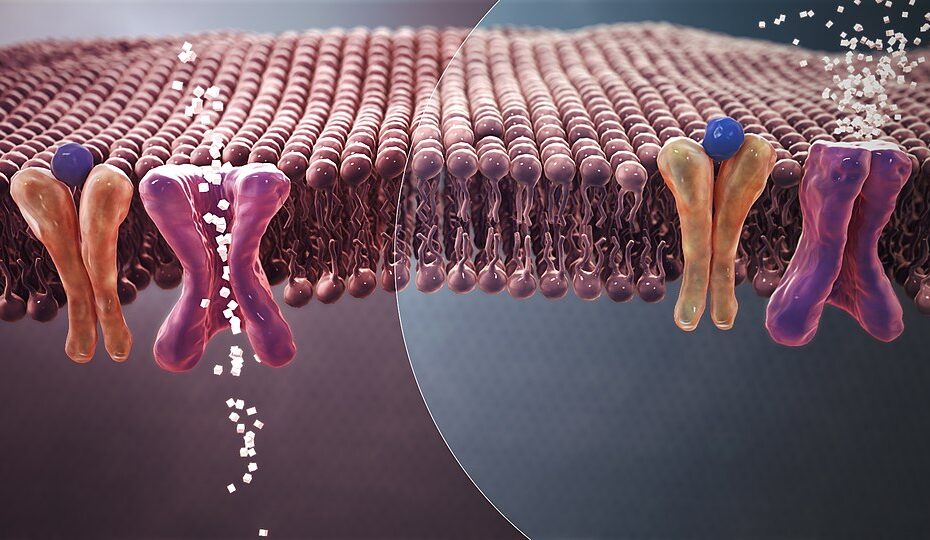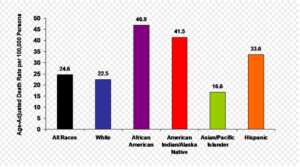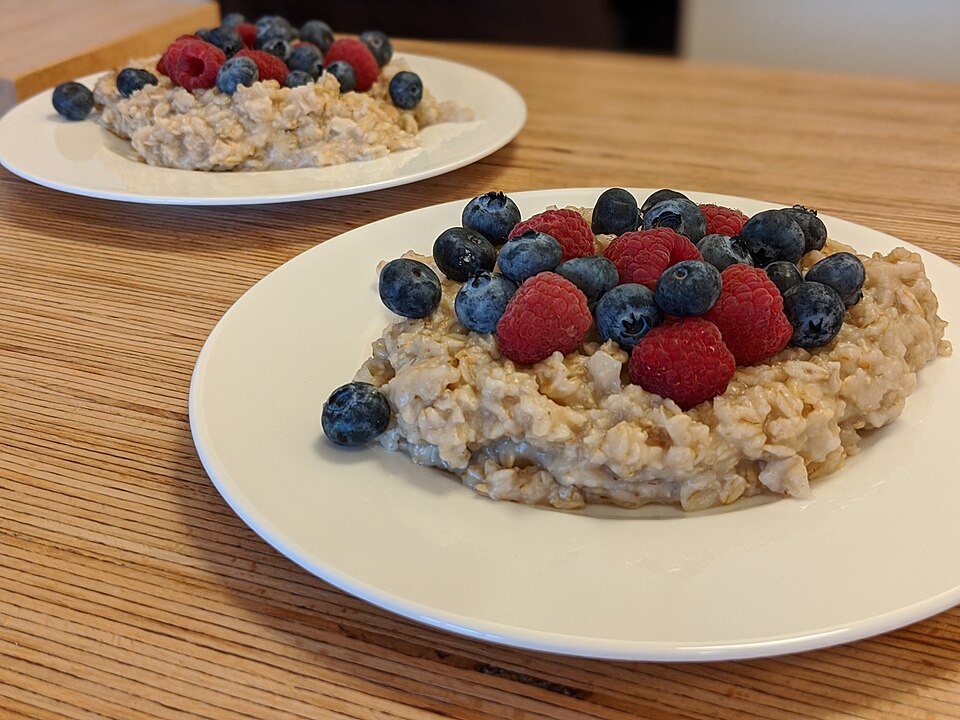Berberine vs Metformin: Evidence, Safety, and A1C Impact
You’ve probably seen the claims online. Berberine is “nature’s metformin” or even “nature’s Ozempic.”
But is this ancient herbal remedy really comparable to a prescription diabetes medication? More importantly, is it safe to make the switch?
So let’s cut through the hype and look at what science actually tells us. We’ll compare effectiveness, safety, dosing, and when each option makes sense.
Understanding the Basics
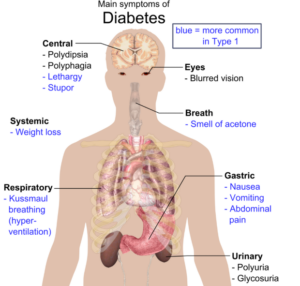
Before we dive into comparisons, let’s understand what we’re dealing with. These two compounds differ significantly in origin and regulation.
What Is Metformin?
Metformin is an FDA-approved prescription medication for type 2 diabetes. It’s been the first-line treatment since 1994 in the United States.
This drug comes from French lilac, a plant used in medieval times for diabetes symptoms. Scientists synthesized it in 1922 and refined it into today’s medication.
Metformin works primarily by reducing glucose production in your liver. Plus, it improves how your cells respond to insulin.
What Is Berberine?
Berberine is a yellow compound extracted from several plants. These include barberry, goldenseal, and Oregon grape.
Traditional Chinese medicine has used berberine for over 3,000 years. It treated digestive issues, infections, and inflammation.
Today, berberine is sold as a dietary supplement. However, the FDA does not regulate it like prescription medications. This means no pre-market safety or effectiveness testing is required.
How They Work: Similar Mechanisms
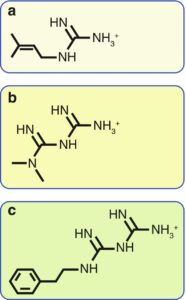
Interestingly, berberine and metformin share some similar mechanisms. This explains why people compare them.
The AMPK Connection
Both compounds activate an enzyme called AMPK (AMP-activated protein kinase). Think of AMPK as your body’s energy sensor.
When AMPK activates, several beneficial things happen:
- Your muscles take up more glucose from the bloodstream
- Your liver makes less new glucose
- Your cells become more sensitive to insulin
- Fat burning increases for energy
This is why both can help lower blood sugar levels. But they activate AMPK through slightly different pathways.
Additional Actions
Metformin also reduces glucose absorption in your intestines. This contributes to its blood sugar-lowering effects.
Berberine appears to have additional actions too. Research suggests it may affect gut bacteria in beneficial ways. Plus, it might have stronger effects on cholesterol than metformin.
Berberine vs Metformin for A1C: What the Studies Show
Now for the big question. How do they compare for actually controlling blood sugar?
The A1C Evidence for Metformin
Metformin has extensive research backing. It typically reduces A1C by 1 to 2 percentage points.
For example, if your A1C is 8.5%, metformin might bring it down to 6.5-7.5%. The exact reduction depends on your starting level and other factors.
This effect is well-documented across thousands of studies and millions of patients over decades.
The A1C Evidence for Berberine
Several studies have compared berberine directly to metformin. The results are intriguing.
In one key study, 36 newly diagnosed type 2 diabetics took either berberine or metformin for 3 months. Both groups saw similar improvements:
- A1C dropped from 9.5% to 7.5% with berberine
- Fasting blood sugar fell from 10.6 to 6.9 mmol/L
- After-meal blood sugar decreased from 19.8 to 11.1 mmol/L
These numbers matched metformin’s performance in the same study. Plus, triglycerides improved more with berberine.
The Research Limitations
But here’s the catch. Most berberine studies have important limitations:
Research Gaps to Consider:
- Most studies were small (often under 100 participants)
- Study duration was typically only 3-6 months
- Many studies were conducted only in Asian populations
- Long-term safety data is lacking
- Quality control of berberine supplements varies widely
- Not all studies used standardized berberine formulations
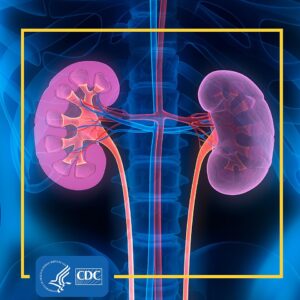
Metformin, by contrast, has been studied for over 60 years. We know its long-term effects, risks, and benefits thoroughly.
Berberine vs Metformin Dosage: How Much of Each?
Proper dosing differs significantly between these two compounds. So let’s break down the specifics.
Standard Metformin Dosing
Doctors typically start metformin at a low dose. Then, they gradually increase it based on your blood sugar response.
| Metformin Type | Starting Dose | Maximum Dose | Timing |
|---|---|---|---|
| Immediate Release | 500 mg twice daily | 2,500-2,550 mg daily | With meals |
| Extended Release | 500 mg once daily | 2,000 mg daily | With evening meal |
Your doctor adjusts the dose based on kidney function, blood sugar levels, and how well you tolerate it.
Typical Berberine Dosing
Berberine dosing isn’t standardized since it’s a supplement. However, most research uses similar amounts.
The typical berberine dose is 500 mg taken 2-3 times daily. This totals 1,000-1,500 mg per day.
Because berberine has a short half-life, splitting the dose throughout the day works better. Take it before or with meals to reduce digestive upset.
Absorption Differences
Here’s an important distinction. Metformin has much better oral bioavailability than berberine.
Your body absorbs metformin more efficiently. Berberine’s absorption is limited, which is why higher doses are often used.
Some newer berberine formulations use enhanced delivery systems. These may improve absorption, but research is still emerging.
Safety Profiles: What Are the Risks?
Both compounds can cause side effects. But they differ in what we know about long-term safety.
Common Metformin Side Effects
The most frequent metformin side effects involve digestion. These include:
- Nausea and vomiting
- Diarrhea
- Bloating and gas
- Stomach discomfort
- Metallic taste in the mouth
The good news? These symptoms often improve after a few weeks. Taking metformin with food helps too.
Extended-release formulations cause fewer digestive issues. Starting with a low dose and increasing gradually also reduces side effects.
Serious Metformin Risks
Metformin carries some serious but rare risks:
⚠️ Rare but Serious Metformin Risks:
- Lactic acidosis: A dangerous buildup of lactic acid. Extremely rare but requires immediate medical attention.
- Vitamin B12 deficiency: Long-term use can reduce B12 absorption. Your doctor should monitor levels.
- Low blood sugar: Especially when combined with other diabetes medications or insulin.
People with kidney or liver disease need special consideration. Metformin is processed through the kidneys, so impaired kidney function increases risk.
Common Berberine Side Effects
Berberine causes similar digestive issues. About one-third of users experience:
- Diarrhea or constipation
- Gas and bloating
- Stomach cramping
- Nausea
These effects typically clear up within 4 weeks. Starting with a lower dose helps minimize problems.
Berberine Drug Interactions
Here’s a major concern. Berberine interacts with many medications through liver enzymes.
It affects enzymes called cytochrome P450. These enzymes break down numerous drugs. When berberine interferes, drug levels can become too high or too low.
Medications That May Interact With Berberine:
- Blood thinners (warfarin, aspirin)
- Diabetes medications (including metformin)
- Statins and other cholesterol drugs
- Immunosuppressants (cyclosporine)
- Sedatives and sleep medications
- Blood pressure medications
- Some antibiotics
This is why discussing berberine with your doctor is crucial. They need to review all your medications for potential interactions.
Long-Term Safety Data
Metformin has over 60 years of use and extensive safety monitoring. We understand its long-term effects well.
Berberine lacks this long-term data. Most studies last only 3-6 months. We don’t know the effects of taking it for years or decades.
Berberine and Metformin Together: A Synergistic Approach?
Now here’s something interesting. Some research suggests using both together might work better than either alone.
The Combination Study Results
In the same study mentioned earlier, 48 people with poorly controlled diabetes added berberine to their existing treatments. This included metformin and other diabetes medications.
The results were impressive. A1C dropped from 8.1% to 7.3%. Plus, fasting insulin decreased by 28%, and insulin resistance fell by 45%.
These improvements exceeded what metformin alone typically achieves. This suggests berberine might offer additive benefits.
How the Combination Might Work
Berberine and metformin activate AMPK through different pathways. So they might complement each other.
Plus, berberine’s additional effects on cholesterol and gut bacteria could provide benefits metformin doesn’t.
Metformin Strengths:
- Stronger blood sugar reduction
- Better studied and understood
- Consistent quality and dosing
- Insurance coverage available
Berberine Strengths:
- Additional cholesterol benefits
- Potential gut health support
- Available without prescription
- May enhance metformin’s effects
Important Combination Cautions
If you’re considering combining berberine with metformin, proceed carefully. Both can lower blood sugar, increasing hypoglycemia risk.
You’ll need to monitor blood sugar more frequently. Plus, your doctor might need to adjust medication doses.
Never add berberine to metformin without medical supervision. This is especially important if you take other diabetes medications or insulin.
Berberine Instead of Metformin: When Might This Make Sense?
Can berberine replace metformin? The answer depends on your specific situation.
When Berberine Might Be Appropriate
Berberine could potentially be suitable for certain situations under medical supervision:
When Metformin Is Essential
Don’t substitute berberine for metformin in these situations:
⚠️ Stick With Prescribed Metformin For:
- Diagnosed type 2 diabetes with A1C over 7.5%
- Blood sugar levels consistently above 200 mg/dL
- History of diabetes complications
- When lifestyle changes alone haven’t worked
- Diabetes requiring multiple medications
- Any situation where your doctor specifically prescribed metformin
Remember that diabetes is a serious condition. Uncontrolled blood sugar damages blood vessels, nerves, kidneys, eyes, and heart.
The proven effectiveness of metformin makes it the gold standard first-line treatment. Berberine simply doesn’t have the same level of evidence or regulatory oversight.
Additional Health Benefits: Beyond Blood Sugar
Both compounds offer benefits beyond diabetes management. Let’s explore what research shows.
Metformin’s Other Benefits
Research suggests metformin may help with:
- Weight management: Modest weight loss of 5-10 pounds is common
- PCOS symptoms: Improves ovulation and reduces testosterone in women with polycystic ovary syndrome
- Cancer prevention: Some studies suggest reduced cancer risk
- Longevity: Ongoing research explores anti-aging effects
Berberine’s Additional Effects
Berberine shows promise for several other conditions:

“U.S. age-adjusted death rates from diabetes in 2005, by race/ethnicity (public domain).” Cholesterol reduction: May lower LDL and triglycerides more effectively than metformin
- Blood pressure: Slight reductions in both systolic and diastolic pressure
- Fatty liver disease: May reduce liver fat accumulation
- Weight loss: Modest effects similar to metformin
- Gut health: May beneficially alter gut bacteria
Quality and Standardization Issues
Here’s a critical difference. Metformin quality is tightly regulated. Berberine quality varies dramatically.
The Supplement Quality Problem
A 2017 study tested various berberine supplements. Researchers found wide variation in actual berberine content.
Some products contained far less berberine than claimed. Others had contaminants or unlisted ingredients.
Plus, price didn’t predict quality. Expensive supplements weren’t necessarily better than cheaper ones.
Choosing a Quality Berberine Supplement
If you decide to try berberine, quality matters immensely. Look for these markers:
Quality Indicators:
- Third-party testing certification (USP, NSF, or ConsumerLab)
- Clear label showing berberine HCl content per capsule
- Standardized to 97% or higher berberine content
- GMP (Good Manufacturing Practice) certification
- Reputable manufacturer with quality track record
- Batch testing results available
Metformin Consistency
Prescription metformin must meet strict FDA standards. Every pill contains exactly what the label claims.
Generic versions work just as well as brand names. The FDA requires bioequivalence testing to prove this.
Cost Considerations
Money matters when managing chronic conditions. Let’s compare the financial aspects.
Metformin Costs
Generic metformin is inexpensive. Without insurance, it typically costs $4-20 per month.
With insurance, copays are usually minimal. Many insurance plans cover metformin completely.
Plus, patient assistance programs help those who can’t afford medications.
Berberine Costs
Berberine supplements range from $15-50 per month. Quality products tend to cost more.
However, insurance doesn’t cover supplements. You pay the full price out of pocket.
Over time, this can add up. Plus, if berberine doesn’t work well, you’ve spent money without benefit.
Making the Right Choice for You
So how do you decide between berberine and metformin? Or whether to use them together?
Talk to Your Healthcare Provider
This decision requires professional medical guidance. Your doctor can evaluate:

“Early medical illustrations referencing diabetes in medieval manuscripts.” Your current A1C and blood sugar patterns
- Other health conditions you have
- Medications you’re taking
- Your diabetes progression and risk factors
- Whether lifestyle changes alone might work
Don’t make this decision based solely on internet information. Your specific situation matters.
Consider a Comprehensive Approach
Neither berberine nor metformin works magic alone. The best results come from a comprehensive strategy:
The Bottom Line
Berberine shows genuine promise for blood sugar management. Research demonstrates it can lower A1C comparably to metformin in some studies.
But promising research isn’t the same as proven therapy. Metformin has:
- Decades of safety data
- FDA approval and oversight
- Consistent quality and dosing
- Extensive research in diverse populations
- Proven long-term effectiveness
Berberine may work well as a complementary approach. It might help people who can’t tolerate metformin. And it could provide additional benefits when combined with metformin.
But it shouldn’t replace prescribed diabetes medication without medical supervision. The stakes are too high.
For more comprehensive strategies on natural diabetes support, check out our ultimate guide to natural diabetes support, which covers evidence-based approaches that work alongside medical treatment.
References
- National Institutes of Health. (2018). Metformin and berberine, two versatile drugs in treatment of common metabolic diseases. Comprehensive review of both compounds’ mechanisms and applications.
- National Institutes of Health. (2008). Efficacy of Berberine in Patients with Type 2 Diabetes. Key clinical trial comparing berberine to metformin.
- Cleveland Clinic. (2025). Berberine vs. Metformin: Are They the Same? Medical professional analysis of differences and similarities.
- National Center for Complementary and Integrative Health. Berberine and Weight Loss: What You Need To Know. Official NIH information on berberine.
- Mayo Clinic. (2025). Berberine Weight Loss Supplement Benefits and Risks. Expert analysis of berberine’s effects and safety.
- WebMD. (2024). Berberine: Benefits, Side Effects, and Weight Loss. Comprehensive overview of berberine research.
- Nebraska Medicine. (2025). Is berberine a safe alternative treatment for diabetes? Endocrinologist perspective on berberine for diabetes.
- Ohio State University. (2025). Berberine for Weight Loss. Registered dietitian analysis of berberine effectiveness.
- Mayo Clinic. Metformin Side Effects. Complete information on metformin safety profile.
- U.S. Food and Drug Administration. Metformin Information. Official FDA guidance on metformin use.
- Healthline. (2024). Berberine for PCOS: Benefits, Side Effects, and Dosage. Evidence on berberine for hormonal health.
- Medical News Today. (2025). Berberine: Benefits, supplements, side effects, dosage, and more. Comprehensive berberine supplement guide.
Related Articles
- The Ultimate Guide to Natural Diabetes Support – Comprehensive strategies for managing blood sugar naturally alongside medical treatment.
- Which is Better for Diabetes, Berberine or Metformin?
- 7 Natural Supplements to an Appropriate Blood Sugar Levels
- Bitter Melon Tea vs. Capsules: Which is Better for Blood Sugar Control?
About the Author
The Remedy Verified Team translates complex metabolic science into clear, practical strategies for everyday health.
Medical Disclaimer
This article is for informational purposes only and does not constitute medical advice. Never stop, start, or change prescription medications without consulting your healthcare provider. Berberine is not FDA-approved for treating any medical condition. If you have diabetes, work closely with your medical team to manage your condition safely. Blood sugar management requires professional medical supervision. The information provided here should not replace consultation with qualified healthcare providers who can evaluate your specific situation and health needs.
